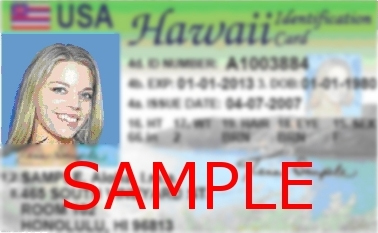State Implements New Driver Licensing Requirements
By Sonia Isotov
Beginning Monday, March 5, 2012, proof of so-called “legal presence” will be required for driver licenses and learner’s permits throughout Hawaii.
The state Department of Transportation (DOT) and all county Motor Vehicle, Licensing and Permits Divisions will implement the Legal Presence Act requirements in accordance to Act 28 of the 2010 state Legislative session. This is a major component of the federally mandated REAL ID Act of 2005 that will affect driver licensing requirements statewide.
Proof of “legal presence” will be required of all individuals renewing, reinstating and applying for a Hawaii driver license or learner permit. Existing permit holders must also comply with requirements before passing their road tests. These requirements apply to all US citizens and foreign-born residents.
“In response to the terrorist attacks of September 11, the new requirements passed by Congress are intended to strengthen the reliability of state-issued identification and to make it much more difficult for criminals to commit ID fraud,” said DOT Spokesman Dan Meisenzahl, in a written statement. “At some point in the near future, all US citizens will need a compliant Real ID for air travel within the United States. We have to make sure Hawaii and its residents are prepared.”

Maui County Service Center at the Maui Mall handles driver licensing for the County. Courtesy photo.
Individuals must provide a valid or certified copy of their Social Security card. In addition, to demonstrate legal presence, the driver licensing offices will also require at least one of the following documents:
- A valid, un-expired US passport
- An original or certified copy of a birth certificate filed with a state Department of Health or equivalent agency in the individual’s state of birth
- A Consular Report of Birth Abroad (CRBA) issued by the US Department of State, Form FS-240, DL-1350 or FS-545
- A valid, un-expired permanent resident card issued by US Citizenship and Immigration Services (USCIS), Form I-551
- A certificate of naturalization issued by the Department of Homeland Security (DHS), Form N-550
- A certificate of citizenship issued by the DHS, Form N-560
- A valid US Active Duty/Retiree/Reservist Military ID Card (DOD ID DD-2)
- A valid foreign passport with Visa and I-94 issued by Customs and Border Protection, DHS
Additional requirements may apply. For instance, married women who have changed their last names must also provide a valid or certified copy of their marriage licenses.
In conjunction with implementation of the Legal Presence Act, Hawaii will be issuing temporary licenses, and upon completion of all verifications, the plastic license will be mailed. If there are no subsequent issues that come up after the initial processing, applicants should receive their plastic licenses within two weeks of the date that they applied.
A full list of the Legal Presence Act requirements and frequently asked questions can be found at www.hawaii.gov/dot and click on the legal presence banner.











